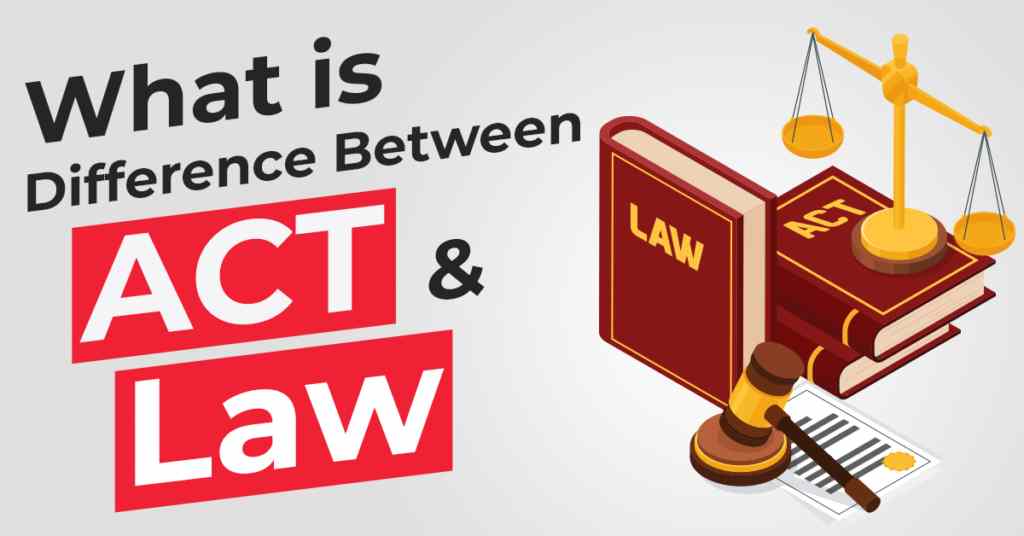
Explore Key 12 Difference between Act and Law in simple terms
Welcome! In this article, we’ll explore the intriguing difference between ACT and LAW. Join me on this informative journey as we unravel the nuances that set these legal terms apart. Let’s delve in!
Difference between Act and Law
When it comes to the legal landscape, it’s crucial to understand the distinctions between acts and laws. While they might seem interchangeable at first glance, there are key differentiating factors that set them apart. So, let’s dive into the 12 notable difference between ACT and LAW:
Origin: Acts are proposed laws that have advanced through the legislative process but have not yet become laws, according to their origin. Laws, on the other hand, are enacted acts that have legal standing.
Legal Status: Laws have a permanent legal status once they are enacted, whereas acts only have a temporary status up until they receive royal assent.
Enforceability: Acts must first become laws in order to be put into effect. On the other hand, laws can be enforced through the legal system, and there may be penalties or repercussions for breaking them.
Hierarchy: Because they are the main source of legislation, acts are higher in the legislative hierarchy. While acts give laws their authority, laws are lower on the hierarchy because of this.
Scope: Acts frequently cover a wider range of legal provisions, whereas laws typically concentrate on particular topics or issues within the legal system.
Public Awareness: Compared to laws, acts typically receive less public attention. Generally speaking, the general public is more knowledgeable about laws that directly impact their daily lives.
Flexibility: Unlike laws, which must go through a lengthy process to make changes, acts can be amended or modified more readily through the legislative process.
Interpretation: Courts, solicitors and other pertinent authorities have the right to interpret Acts. On the other hand, laws are the results of such interpretations and offer more detailed instructions.
Legal Citations: Acts are frequently identified by their bill numbers or titles, whereas laws are identified by their official names or common names, such as the “Clean Air Act” or the “Consumer Protection Law.”
Duration: While laws are typically intended to be permanent, acts may have an expiration date or a specific period of time during which they are valid.
Legislative Process: Acts go through a rigorous legislative process that involves several readings, discussions, and committee reviews. An act no longer goes through the same legislative process once it has been made into a law.
Legal Precedence: Acts have the power to establish legal precedents and have an impact on the creation of new laws. Acts, on the other hand, create the foundation for the existing legal system.
For individuals, legal experts, and policymakers alike, it is crucial to comprehend these difference between acts and laws. It enables us to navigate the intricate web of legislation and make sure the proper legal requirements are being followed.
Also Read: Understand the Key 10 Difference between Alkali and Base